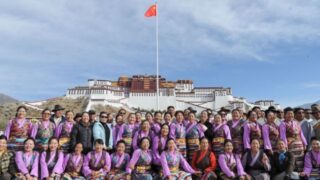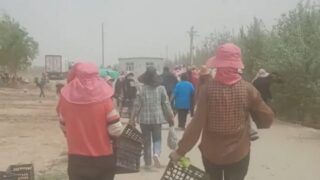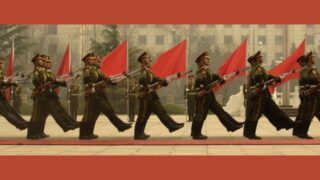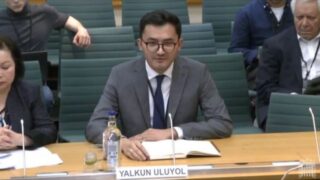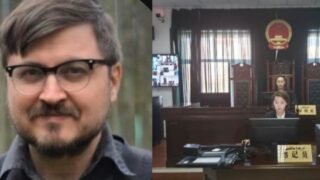Once again, a UN committee indicts the PRC for violating human rights. And once again China answers with contempt and lies.
by Marco Respinti
*A paper presented at the webinar “China’s Colonial Practices and Threat to the Cultural Identity of Tibet,” hosted by the Centre for Himalayan Asia Studies and Engagement (CHASE) and the Tibetan Youth Congress (TYC) on March 31, 2023.
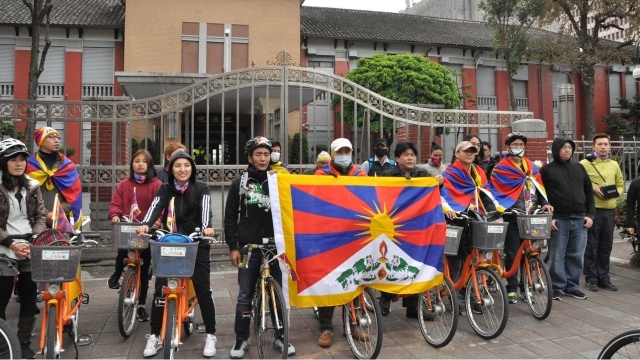

The Committee on Economic, Social and Cultural Rights of the United Nations (CESCR) monitors States compliance to the International Covenant on Economic, Social and Cultural Rights, which was adopted by the UN General Assembly on December 16, 1966. On March 6, 2023, the Committee published the findings of its 73rd session (February 13 to March 3) on a few countries. Beyond Cambodia, Lithuania, Panama, Portugal and Yemen, the Committee presented a report also on China, including Hong Kong and Macao, the two former colonies (of the United Kingdom and Portugal respectively), whose sovereignty passed to the Peoples’ Republic of China (PRC) in 1997, in the case of the former, and 1999, in the case of the latter.
Customarily, CESCR’s reports list both positive and negative findings. As to the PRC, the negative findings in the report of its 73rd session are several, but one is recurrent and comes in different perspectives. It is the human rights issue: violation of human rights by the PRC and the PRC’s failure to respond to former criticism on the topic. “The Committee,” the “Concluding observations” of the report say, “regrets that the State party still has not established an independent national human rights institution, despite the Committee’s previous recommendation to do so.”
Among the many failures of the PRC to uphold a decent level of respect for human rights, and its wrongdoings in this field, the report dedicates a special paragraph to the treatment of “Indigenous Peoples.” In that note, the report states: “Noting the information provided during the dialogue with the State party, the Committee remains concerned about reports that resettlement of nomadic herders, particularly Tibetan herders, is carried out in the State party without proper consultation and in most cases without free, prior and informed consent, particularly in the western provinces and in autonomous regions. The Committee is also concerned about reports that large numbers of small-scale farmers and nomadic herders, including from ethnic autonomous areas, have lost their traditional lands and livelihoods owing to poverty alleviation schemes and ecological restoration resettlement measures, and that compensation for expropriated property is often insufficient to maintain an adequate standard of living – arts. 1 (2) and 2 (2).”
For this reason, the report continues, “[t]he Committee reiterates its recommendation that the State party take all necessary measures to immediately halt non-voluntary resettlement of nomadic herders, including Tibetan herders, from their traditional lands and non-voluntary relocation or rehousing programmes for other rural residents, such as small-scale farmers, and that the State party carry out meaningful consultations with the affected communities in order to examine and evaluate all available alternative options, and offer full, adequate and timely compensation for expropriations that have already been carried out.”
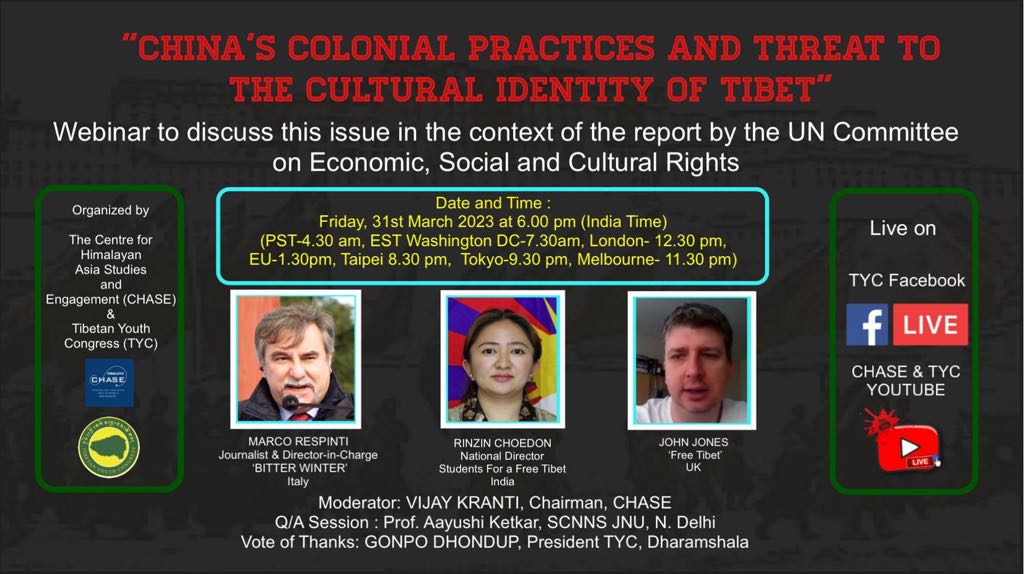

The report also highlights a second key point: freedom of education in Tibet. “Noting the information provided during the dialogue with the State party,” it states, “the Committee remains concerned about reports that ethnic minorities continue to face severe restrictions in the realization of their right to take part in cultural life, including the right to use and teach minority languages, history and culture. The Committee is concerned about reports of closures of schools providing instruction in minority languages, as well as in the Tibetan, Uyghur and Kazakh languages. The Committee is also concerned about reports of the large-scale campaign to eradicate Tibetan culture and language, as well as the general undermining of the linguistic identity of ethnic minorities through the assimilation policy of the State party, known as sinicization, including the coerced residential (boarding) school system imposed on Tibetan children (arts. 13, 14 and 15).”
So the Committee “reiterates its recommendation that the State party take all necessary measures to ensure the full and unrestricted enjoyment by peoples and minorities of their right to enjoy fully their own cultural identity and take part in cultural life, to ensure the use and practice of their language and culture, and to abolish immediately the coerced residential (boarding) school system imposed on Tibetan children and allow private Tibetan schools to be established. The Committee also recommends that the State party ensure that Mandarin is not the only language of instruction allowed for ethnic minorities and peoples.”
Tibet, says in sum the report, is one of the high places where the Chinese Communist Party (CCP), which tyrannically governs the PRC, violates human rights the most.
And not only there. A subsequent paragraph of the report deals with what the Chinese regime calls the Xinjiang Uyghur Autonomous Region and its non-Han inhabitants prefer to designate as East Turkestan. “Noting the information provided during the dialogue with the State party,” the report explains, “the Committee is concerned about reports of the discriminatory character of severe, systematic, vast and undue restrictions on a wide range of economic, social and cultural human rights, as well as the targeting of predominantly Uyghur, Kazakh, Kyrgyz, Hui and Turkic-speaking peoples, as well as other ethnic Muslim communities, in the Xinjiang Uighur Autonomous Region – art 2 (1).”
So, “[t]he Committee urges the State party to immediately bring to an end the violations of human rights in the Xinjiang Uyghur Autonomous Region. The Committee also urges the State party, in line with decision 1 adopted by the Committee on the Elimination of Racial Discrimination at its 108th session, under the early warning and urgent action procedure, to effectively implement the concluding observations of the Committee on the Elimination of Racial Discrimination and the Committee against Torture, as well as the recommendations included in paragraph 151 of the OHCHR assessment of human rights concerns in the Xinjiang Uyghur Autonomous Region.”


Xinjiang/East Turkestan, says in sum the report, are high places where the CCP violates human rights the most. Indeed, more could be expected from CESCR, since in Tibet and Xinjiang/East Turkestan violations of human rights amount to the horrors of cultural genocide, but we may be all content with yet another UN agency speaking some truth on the PRC’s crimes.
Of course, following its customary script, the PRC responds to these denunciations by simply calling them lies. In the official “Comments to concluding observations” attached to the CESCR report, one can in fact read: “China regrettably noted that the Concluding Observations cited and accepted some false information and rumors on Xinjiang, Tibet, and Hong Kong-related issues, did not pay due attention to authoritative information such as facts and figures provided by China. The recommendations arising therefrom are untruthful, full of bias and double standards China rejected those recommendations.” A totally laughable line follows: “The Chinese government attaches great importance to fulfilling its obligations under international human rights instruments to which it has acceded to,” then a plethora of seemingly detailed answers to accusations.
So, what do we have here? We have the PRC and the CCP that are again indicted at an international level for violating human rights by a recognized authority. And what is particular and new in this CESCR denunciation? Nothing.
It is yet another document, yet another report by the UN, or one of its bodies or agencies, yet another open denunciation of a serious crime against humanity, and yet another propaganda reaction by the PRC, which cuts all short by calling accusations lies and accusers liars, to simply continue its dirty business in Tibet, in Xinjiang/East Turkestan, and everywhere.
Over the last few years, the CCP’s position has in fact become quite indefensible even for the most ardent pro-PRC supporters. It is in fact impossible to hide the CCP’s misdeeds. Even the CCP changed its own narrative on its own crimes a number of times. But the impossibility of hiding hard facts also heavily influenced the PRC’s reactions. Bullying its adversaries, as well as its victims, today the PRC substantially responds to accusations by saying “so what?” And this is quite alarming.
Only those who think they are in a dominant position can afford the luxury to let questions go unanswered. It is called hybris. The CCP scorns international organizations since it believes it is virtually omnipotent. Given the fact that the CCP’s scorn always remains the last word on things, we can conclude that the CCP’s power in the world is not only a CCP’s self-perception but it’s real. And this is hybris spiced up with actual power.
It is the worse news. Many claim that the situation in China is now better than in the past because of the many indictments of the CCP that come almost daily. They are wrong. It would be good news if those denunciations had the effect of guiding the PRC to a better behavior. But they do not. The more the world discovers of CCP’s crimes, the more the CCP sneers. So, denunciations of serious crimes committed by the PRC, summed to the PRC’s sneering, only worsen the situation. It is a paradox. The CCP’s contempt in face of the increasing number of denunciations of its brutalities only shows the seemingly untouchable strength of the Party.
Of course, I am not suggesting stopping fact-finding on the CCP’s crimes, and denunciations. Quite the contrary. I am only noting the fact that an accuser with no real power to hold the accused accountable provides only virtual justice, with no hope of changing any situation.
The CCP will continue its threat to and persecution of Tibet’s cultural identity unless the world has a means to stop it. As an observer, I am not in the position to suggest which means the world should use to compel the PRC to adopt a more humane behavior. I can only suggest that, until the world continues to find it more convenient to trade with the PRC’s power, thus fueling the CCP’s hybris, Tibetans and other peoples will continue walking theirs paths of sorrow.
Of course, this is just a moral stand, and possibly highly impractical. But we need strong morals to look into the eyes of the immoral CCP. It may look a cavalier proposal, but the world needs knights to challenge the Red Dragon.



